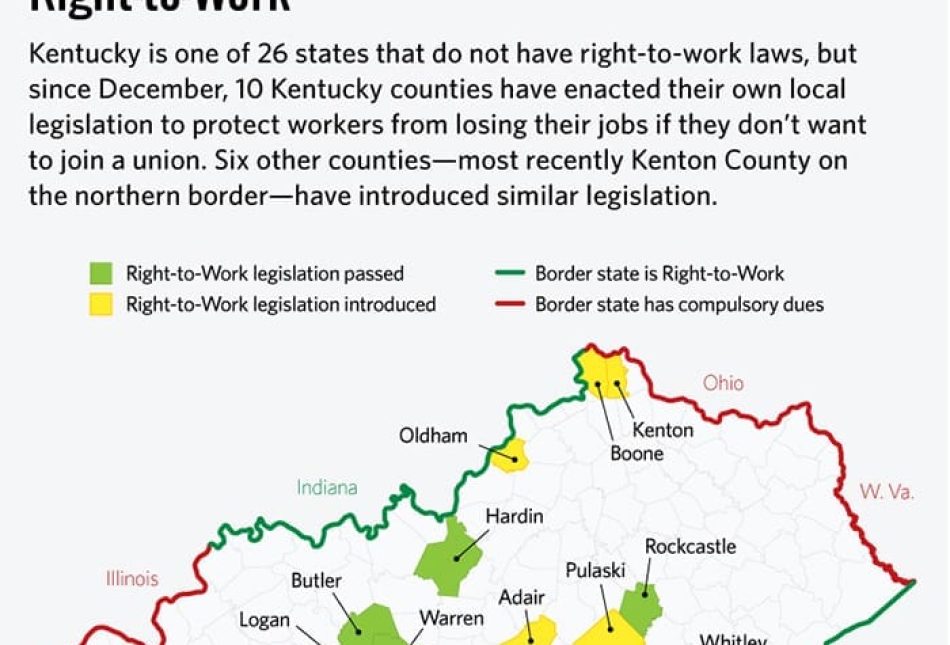Time for local governments to lead the way and help economic growth in New Mexico


As Legislative Finance Committee Chair Rep. Patty Lundstrom, D-Gallup, put it in an August opinion piece, “A strong national economy is lifting up our state,” but overall the New Mexico economy remains stagnant.
That’s a polite way of saying that New Mexico, with its second-highest-in-the-nation unemployment, has seen slight economic progress, but that progress is not the result of reforms coming out of Santa Fe. We agree.
Sadly, Lundstrom and other leaders in the Legislature have few proposals for turning our state around. Instead, two ideas seem to have taken hold: 1) raise taxes or; 2) tap the permanent fund. Either way, more government spending – not doing more with existing funds – seems to be the priority.
Adoption of a “right to work” law has been one bold reform idea put forth by both Gov. Susana Martinez and the Rio Grande Foundation, and it is working around the country. In recent years, state legislatures, including West Virginia, Kentucky and Missouri, have adopted such laws as a means of restoring worker freedom and improving economic outcomes.
Unfortunately, while we’d love to have the New Mexico Legislature act on right to work, for political reasons that isn’t in the cards for now. But the fight for right to work is no longer limited to the states. Across the country, local governments, often frustrated with policies enacted in their state capitals, are embracing it. Before Kentucky went “right to work” in early 2017, in fact, several Kentucky counties, led by Warren County – home of GM’s Corvette assembly plant – adopted right to work.
Within six months of passing right to work in Warren County – in December 2014 – local officials received inquiries from 47 economic development projects. That’s compared to just 32 inquiries received in the entire state in 2014.
Those inquiries turned into $1 billion in capital investment in Warren County. And, when legislators in other parts of the state saw what was happening in Warren County, they certainly took notice – with 12 other counties following suit.
New Mexico is desperately in need of the kind of economic boost that a right-to-work law can provide. But if the Legislature is unwilling to act, as it has been for decades, it is up to local governments to take the lead.
Better still, these initiatives stand a good chance of holding up in court. There is no doubt that unions will fight them with every argument and resource they can muster. They took West Virginia’s law to court and were able to delay it for more than a year until the state’s Supreme Court gave it the green light. And when Kentucky’s right-to-work counties faced legal challenges, those county ordinances were upheld by the 6th District Federal Court of Appeals.
As the West Virginia Supreme Court noted in its opinion confirming the legality of that state’s right-to-work law, “the unions have not directed us to any federal or state appellate court that, in over seven decades, has struck down such a (right-to-work) law.”
The legality of right to work has been repeatedly affirmed in the courts because, far from being anti-union, such laws simply allow individuals to decide whether they want to pay union dues and fees or not. Right to work respects the right of free association.
The unions will trot out all the usual lies about right to work, but the fact is that, for decades, Americans have been moving to states with greater worker freedom and better job opportunities. Our neighboring states, including Texas, Arizona and Utah, all seem to understand this, and are economically robust and fast-growing. We aren’t.
The Sandoval County Commission is considering adopting a local ordinance in an attempt to break free from the failed policies imposed by the Legislature. Our hope and belief is that it will be the first of many such efforts.
The Rio Grande Foundation is an independent, non-partisan, tax-exempt research and educational organization dedicated to promoting prosperity for New Mexico based on principles of limited government, economic freedom and individual responsibility.
